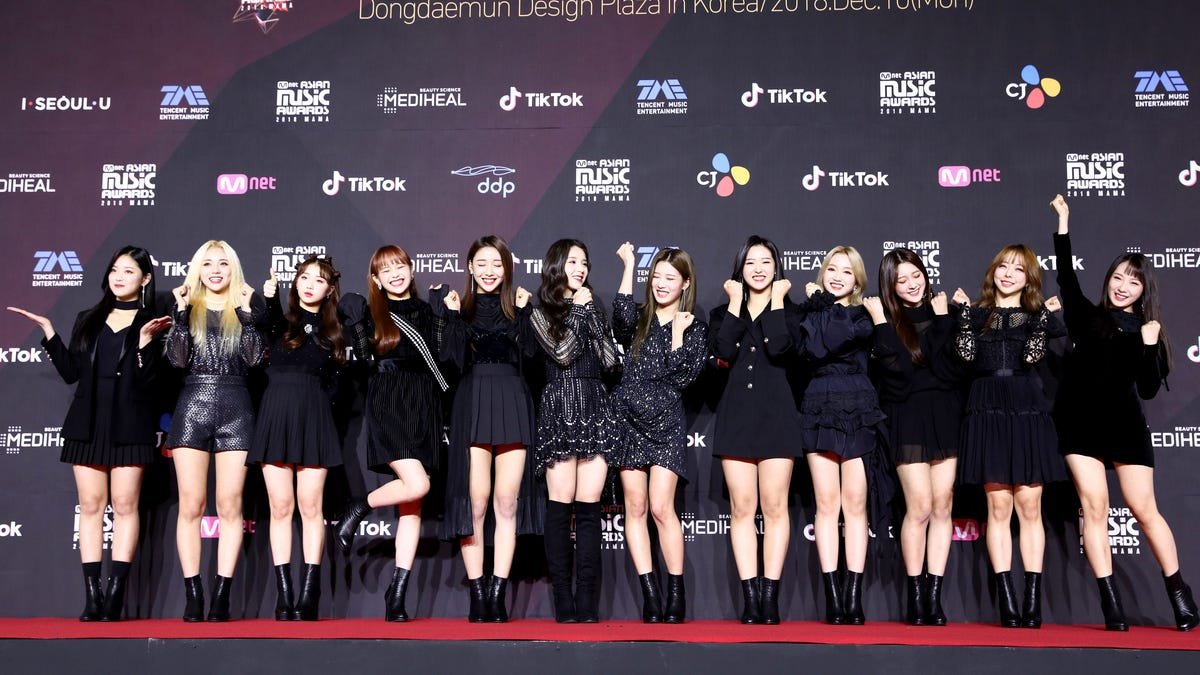Kpop girl group LOONA’s plans for a comeback have been shelved after a fan boycott capped months of drama between its record label Blockberry Creative and one of the ensemble’s former members, Chuu, exposing a dark side to the Korean music business.
The rumblings of trouble began last spring, when it was reported that Chuu had filed a lawsuit (link in Korean) against Blockberry Creative in December 2021, seeking to suspend her contract. According to news website Korea JoongAng Daily, the court partially approved her suit, ruling she could be granted a preliminary injunction.
But Chuu’s victory may have also been the writing on the wall. On Nov. 25, Blockberry Creative announced that she was being dropped from the group for “violent language and misuse of power toward our staff,” an abusive workplace behavior known in Korea as talkativewhere higher ups abuse lower-level staff. The allegations against Chuu were met with raised eyebrows amongst fans and industry professionals alike.
On Nov. 29, days after Chuu’s removal, JTBC reported (link in Korean) that nine of the remaining LOONA members had filed an injunction against the label to suspend their exclusive contracts, citing a dissolution of trust between them and the company. Blockberry Creative denied the report.
Then the group’s fandom, known as Orbits, stepped into the ring. They proclaimed a boycott of LOONA’s upcoming album, The Original Album: 0originally set for release on Jan. 3. As prospective sales started to dive, Blockberry Creative declared the album release indefinitely postponed.
How the LOONA fan boycott works
On Dec. 5, LOONA Union, one of the group’s largest online fanclubs, issued an open letter demanding Blockberry Creative give an explanation for the alleged mistreatment of LOONA members. It gave the company a Dec. 7 deadline to answer, threatening a boycott in the event of no response.
The fandom’s demands were threefold: that allegations against Chuu be retracted, an apology be made towards the group, and LOONA members be offered the option to terminate their contracts. The label kept mum, and a boycott of LOONA’s new album pre-sales, coordinated mostly over Twitter and Tumblr, began on Dec. 8.
Fans were told to cease all purchase of Blockberry Creative merchandise, albums, and event tickets. According to Twitter account @loona_stats, preorders for the new album dropped by 98% compared with the previous album. An extensive list of Kpop stores around the globe also joined the boycott, committing to no longer stock LOONA products.
Instead of the usual number-pumping goals of Kpop fandoms, the new target for The Original Album: 0 literally became zero. On Dec. 22, Blockberry Creative announced its suspension of the group’s album release in January, saying the comeback would be “meaningless” amid outstanding issues. The boycott is still ongoing.
What’s going on with LOONA’s contracts?
The big sticking point for boycotting fans are LOONA’s reportedly exploitative contracts, which may be shorting the group members on pay while strapping them with ever-mounting volumes of debt.
On Dec. 19, a bombshell exposé published by Dispatch, a Korean celebrity gossip site, revealed the terms (link in Korean) of Chuu’s exclusive contract that she signed in December 2017, when she was just 18 years old. The contract reportedly set an earnings ratio between the record label and Chuu at 7:3, where Blockberry Creative would scoop up 70% of the profits, while Chuu would be left with 30%. The contract also reportedly split expenses between the two parties at 5:5, where each side would be responsible for 50% of costs.
According to Dispatch, the contract structure has saddled each LOONA member with approximately 200 million won ($153,500) of debt, calculated from the group’s cumulative earnings since 2016—18.6 billion won ($14.3 million)—and cumulative expenses over that same period—16.9 billion won (nearly $13 million).
Orbits have said the contracts are trapping LOONA members in a cycle of “perpetual debt.”
South Korea’s Kpop industry has a history of exploitative contracts
The controversy has put a spotlight on the industry greed behind Kpop’s glitz and glamor. In the cutthroat business, where many aspiring stars begin training as children, exploitation is a familiar theme. So-called slave contracts, as they are known within the Kpop industry, have locked many a trainee into long-term, extractive agreements with record labels, leading to some cases where they never see a single paycheck despite years of work.
Notably, in 2008, former boy group TVXQ took their management company SM Entertainment (SME) to court over 13-year-long contracts their parents had signed on their behalf when they were children, and in 2014, three members of group EXO ended up exiting the same company, citing exploitative treatment and unfair profit distribution. All three sued SME over their contracts—one lost his caseand two settled. In 2020, the four members of indie rock band The Rose terminated their contracts with J&Star Company, claiming they had not been paid since their debut in 2017. Other instances of unpaid labor in the industry abound.
Over the years, South Korea’s Federal Trade Commission has introduced more regulations to protect artists, including a seven-year limit on contracts and the prohibition of several penalties record labels often slap onto signees.
Still, behind the bubbly dance numbers, artists remain vulnerable to exploitative practices. The LOONA saga has shown that, in the absence of industry unionization, fandom can play a crucial role in negotiating working conditions where labor protections may fail.








